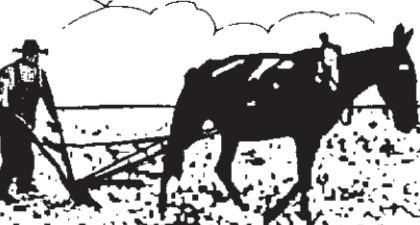‘In Flanders Field’ had its detractors, too
Last Sunday– Memorial Day, at our church, Elder Jeff Hyatt, read the poem, “In Flanders Field,” prior to the Eucharist, in memory of American servicemen who had died in service to their nation.
Canadian physician Lt. Col. John McCrae wrote the poem after presiding at a funeral service for a close friend killed the day before during World War I.
The poem, a touching elegy in most people’s books, is a 13-line work – five lines, three lines, then five lines (officially a rondue) and it reads:
In Flanders fields the poppies blow
Between the crosses, row on row,
That mark our place; and in the sky
The larks, still bravely singing, fly
Scarce heard amid the guns below.
We are the Dead. Short days ago
We lived, felt dawn, saw sunset glow,
Loved and were loved, and now we lie,
In Flanders fields.
Take up our quarrel with the foe:
To you from failing hands we throw
The torch; be yours to hold it high.
If ye break faith with us who die
We shall not sleep, though poppies grow
In Flanders fields.
I read up on McCrae and on Google:
He was inspired to write it on May 3, 1915, after presiding over the funeral of friend and fellow soldier Lieutenant Alexis Helmer, who died in the Second Battle of Ypres. According to legend, fellow soldiers retrieved the poem after McCrae, initially dissatisfied with his work, discarded it. “In Flanders Fields” was first published on Dec. 8 of that year in the London magazine, Punch. Flanders Fields is a common English name of the World War I battlefields in Belgium and France.
It is one of the most quoted poems from the war. As a result of its immediate popularity, parts of the poem were used in efforts and appeals to recruit soldiers and raise money selling war bonds. Its references to the red poppies that grew over the graves of fallen soldiers resulted in the remembrance poppy becoming one of the world’s most recognized memorial symbols for soldiers who have died in conflict. The poem and poppy are prominent Remembrance Day symbols throughout the Commonwealth of Nations, particularly in Canada, where “In Flanders Fields” is one of the nation’s best-known literary works. The poem is also widely known in the United States, where it is associated with Veterans Day and Memorial Day.
McCrae was a poet and physician from Guelph, Ontario. He developed an interest in poetry at a young age and wrote throughout his life. [His earliest works were published in the mid-1890s in Canadian magazines and newspapers. McCrae’s poetry often focused on death and the peace that followed.]
At the age of 41, McCrae enrolled with the Canadian Expeditionary Force following the outbreak of the First World War. He had the option of joining the medical corps because of his training and age but he volunteered instead to join a fighting unit as a gunner and medical officer. It was his second tour of duty in the Canadian military; he had previously fought with a volunteer force in the Second Boer War. He considered himself a soldier first; his father was a military leader in Guelph and McCrae grew up believing in the duty of fighting for his country and empire.
McCrae fought in the Second Battle of Ypres in the Flanders region of Belgium, where the German army launched one of the first chemical attacks in the history of war. They attacked French positions north of the Canadians with chlorine gas on April 22, 1915, but were unable to break through the Canadian line, which held for over two weeks. In a letter written to his mother, McCrae described the battle as a “nightmare.”
It was the second to last poem McCrae would write.
McCrae was moved to the medical corps and stationed in Boulogne, France, in June 1915 where he was promoted to Lieutenant-Colonel and placed in charge of medicine at the Number 3 Canadian General Hospital.[34] He was promoted to the acting rank of Colonel on January 13, 1918, and named Consulting Physician to the British Armies in France. The years of war had worn McCrae down; he contracted pneumonia that day and later came down with cerebral meningitis. On January 28, 1918, he died at the military hospital in Wimereux and was buried there with full military honors.
The poem although becoming well known was criticized by some as “vicious” and “stupid” for containing “recruiting poster rhetoric.”
The poem has lived longer than its critics.
It always touches our inner being.

